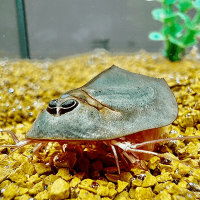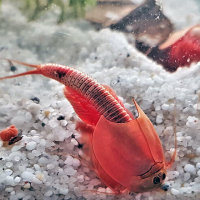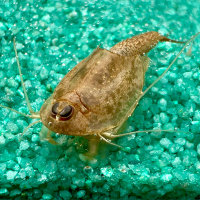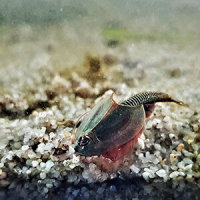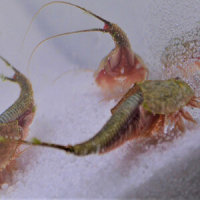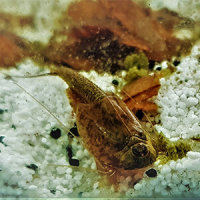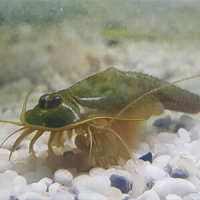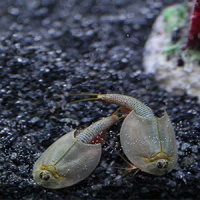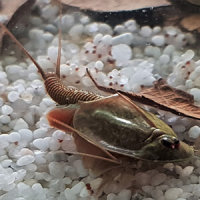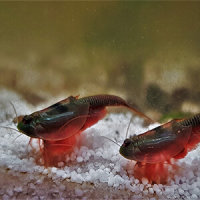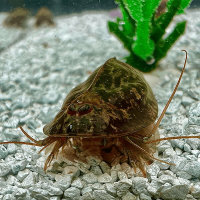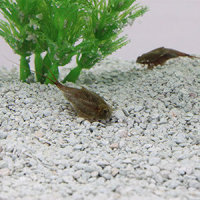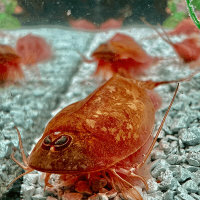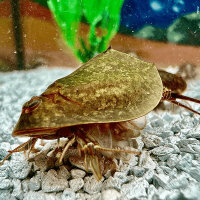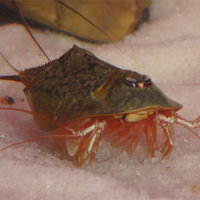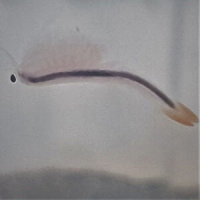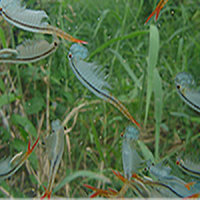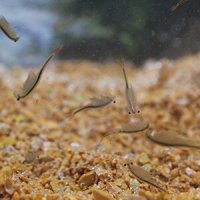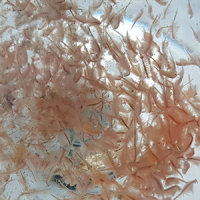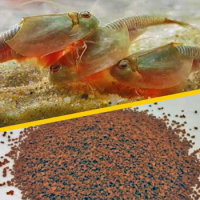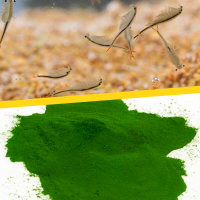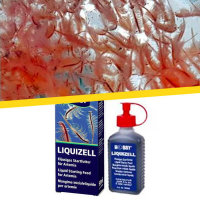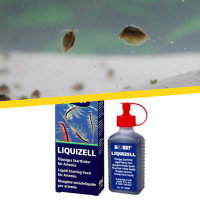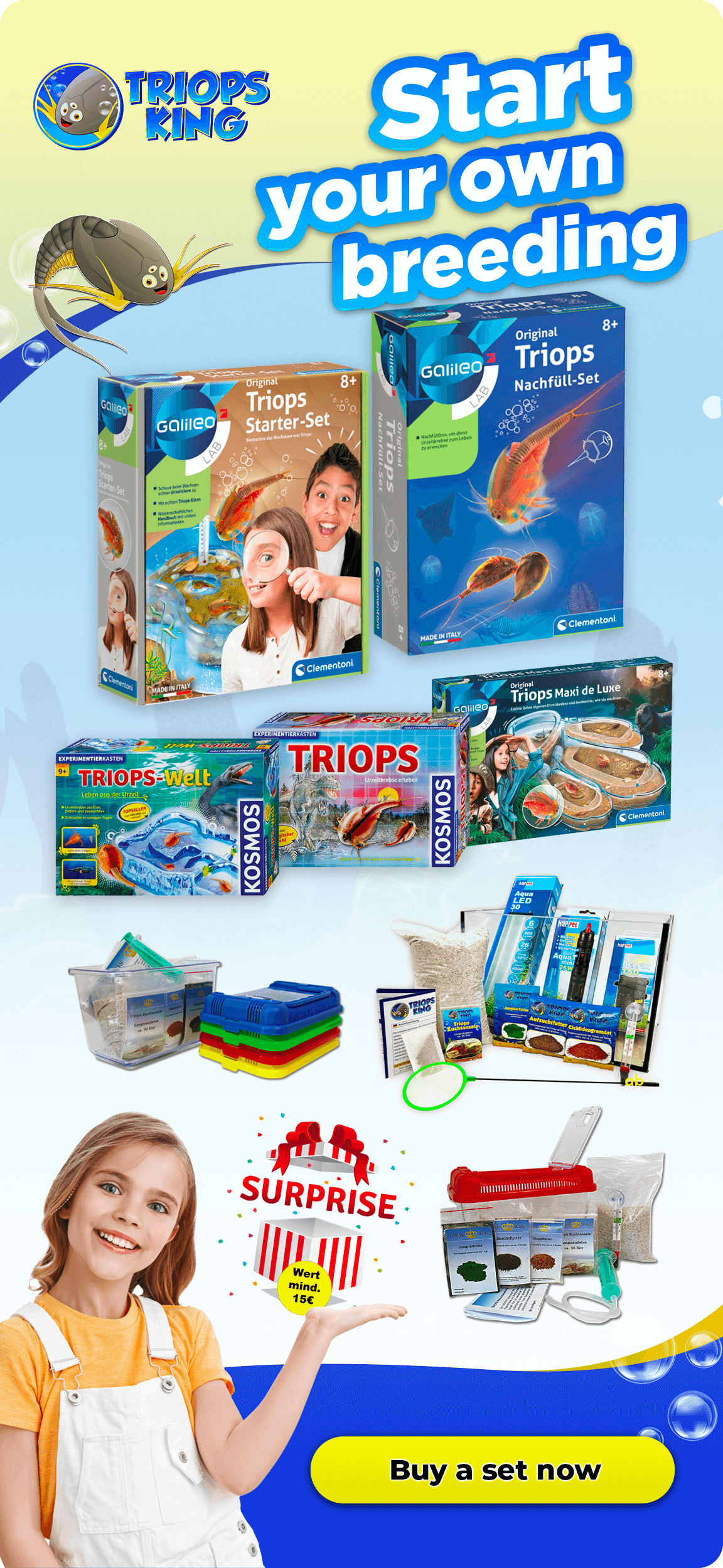Hey, I’m Triopi, a Tadpole Shrimp!
Maybe you have already heard of me or one of my relatives, the clam shrimps or Fairy Shrimps?! I will now take you on a journey through the world of Triops and introduce you to my life! Come along!
In their jargon, researchers call me “Triops” or Tadpole Shrimp. We stem from different continents, such as America, Asia, Africa, Australia or Europe. We Triops lived in the Cretaceous period, during the Ice Age, back when the dinosaurs existed. By “us” I mean myself, representing the Triops-species Longicaudatus, and my peers, such as the Red Longicaudatus, Newberryi or Cancriformis. My most distant relatives also include the clam shrimps and Fairy Shrimps. Overall, we are referred to as Tadpole Shrimps.
Now that you know where I come from, you probably want to know what I look like, next. The main part of my body is my shell. It protects me from hits and from attacks, stabilizes my body and, depending on the species, shows off a different colour. Under my shell there are many pairs of legs, serving as gills. With these I breathe, like fish, move and, when I’m only a few days old, they also serve to filter food from the water. Once a bit older, I will eat, like all other animals, with my mouth which is also located under my shell. The special attribute about me and my peers are our three eyes. Hence our name “Triops” (tri = three and ops = eye). With two of my eyes I can perceive contours and outlines of the area. The third serves for orientations through pressure measurement and light-dark contrasts. With my, at times very long, antenna I grope my surroundings for obstacles and feed. In addition, my body ends in a fork tail. This serves as stabilisation and supports me during swimming.

Dino crabs
Triops hatch from tiny eggs which are difficult to make out by naked eye. As babies, we are transparent and still very small. Therefore, we are very difficult to detect in the water. At about three weeks, our shell develops its colour. In order for us to grow, we need food. Having just hatched, we are still too small to be able to chew. Therefore, we filter our feed by means of our feet gills, for instance bacteria from the water. After one or two days already, can you feed us with spirulina, which are blue-green algae, for as long as about two weeks, until we are grown up enough to chew. From then on, we like to eat rearing feed, main feed or Cichlids granulate.
After a few weeks you can observe that the female Triops begin to grow egg sacs underneath their shells. They can soon lay 60 to 200 eggs per day. From these eggs new Triops nauplii, i.e. babies, will hatch so that you can breed your own Triops.
What is required for your own triops breeding?
The absolute basis is a container with water for us to swim! Next to digging in the sand, swimming is one of our favourite activities. At the beginning, a bowl the size of a shoe box is sufficient. You can still relocate us into a bigger bowl over time. Important, however, is that the tank in the beginning is not too big as, as youngsters, we need to be able to find our feed to not starve to death. Additionally, you should fill up the bottom of the tank with about two centimetres worth of sand for us to dig in and release our eggs in. Triops feed is also important for us to grow and develop. I would suggest adding a thermometer to the tank for you to be able to keep track of the water temperature. Potentially, you may need to add a heater element to the tank for the temperature to be stable and for us to not freeze. Moreover, a fish net is useful as well, as we shed our skins when growing, again and again, and a net makes it easy to get those out of the water.
You are curious and you are interested in your own Triops-breeding ?! A matching starter set for you can be found here!
Find joy in us exceptional creatures!
Yours,
Triopi


